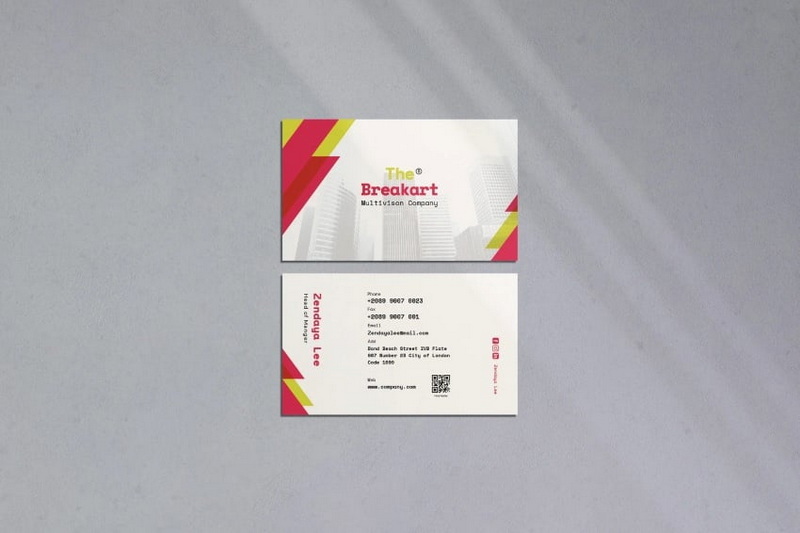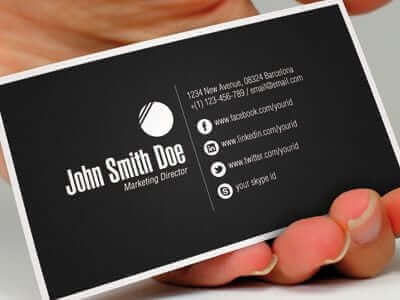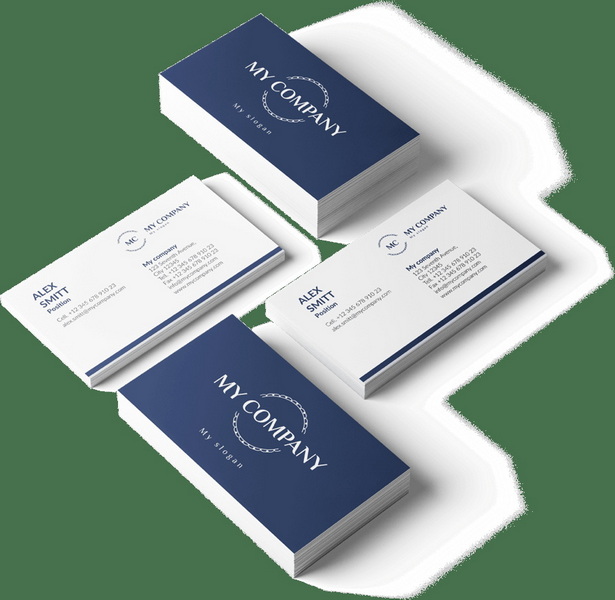Content Menu
● Essential Information to Include
>> Your Name
>> Job Title
>> Company Name and Logo
>> Contact Information
>> Physical Address (Optional)
>> Tagline or Brief Description
● Design Considerations
>> Choose the Right Size and Shape
>> Color Scheme
>> Typography
>> Use of White Space
>> Quality Materials
● Common Mistakes to Avoid
>> Overcrowding Information
>> Poor Quality Printing
>> Ignoring Branding Consistency
>> Forgetting a Call-to-Action
● Examples of Effective Business Cards
● Conclusion
● Related Questions
>> 1 What is the purpose of a business card?
>> 2 How should I choose colors for my business card?
>> 3 Should I include my photo on my business card?
>> 4 Is it better to have digital or printed business cards?
>> 5 How often should I update my business cards?
● Citations:
Creating a business card is an essential step in establishing your professional identity and networking effectively. A well-designed business card not only conveys your contact information but also reflects your brand's personality and values. This article will explore the key elements to include on a business card, design tips, and common mistakes to avoid, ensuring that your card stands out in a competitive landscape.

Essential Information to Include
When designing a business card, it is crucial to include specific information that potential clients or contacts will need to reach you. Here's a breakdown of the essential elements:
Your Name
Your name should be the most prominent feature on your business card. Use a font size that ensures it stands out but remains legible. If you have a preferred name or nickname, use that instead of your full legal name.
Job Title
Including your job title helps recipients understand your role and expertise. Be specific; instead of just "Consultant," use "Digital Marketing Consultant" to give a clearer picture of what you do.
Company Name and Logo
Your company's name should be clearly displayed, ideally accompanied by your logo. This reinforces brand recognition and allows recipients to associate your name with your business visually.
Contact Information
Provide multiple ways for people to contact you:
- Phone Number: Include at least one phone number where you can be reached easily.
- Email Address: Use a professional email address, ideally one associated with your domain.
- Website URL: Direct recipients to your website for more information about your services.
- Social Media Links: If relevant, include links to professional social media profiles like LinkedIn.
Physical Address (Optional)
If you operate from a physical location or want clients to visit you, include your address. However, this is becoming less common for remote workers or businesses without a storefront.
Tagline or Brief Description
A catchy tagline or brief description of what you do can help clarify your services. Keep it concise and memorable, ensuring it aligns with your brand message.
Design Considerations
The visual appeal of your business card is just as important as the information it contains. Here are some tips for creating an effective design:
Choose the Right Size and Shape
Standard business cards are typically 3.5 x 2 inches, but consider unique shapes or sizes that reflect your brand's personality. Non-traditional shapes can make your card stand out but ensure they fit easily into wallets.
Color Scheme
Select colors that represent your brand identity. Use contrasting colors for text and background to enhance readability. Research color psychology to choose colors that evoke the right emotions related to your industry.

Typography
Choose fonts that are easy to read and reflect the tone of your brand. Limit yourself to two different fonts—one for headings and another for body text—to maintain visual cohesion.
Use of White Space
Don't overcrowd your card with information; leave plenty of white space for clarity and ease of reading. This helps highlight the most important details without overwhelming the recipient.
Quality Materials
Invest in high-quality cardstock or unique materials (like recycled paper, plastic, or metal) to convey professionalism and durability. The texture can also add an interesting tactile element that makes recipients want to keep your card.
Common Mistakes to Avoid
When designing and printing business cards, be mindful of these common pitfalls:
Overcrowding Information
Trying to fit too much information onto a small card can lead to cluttered designs that are hard to read. Stick to essential details and consider using both sides of the card if necessary.
Poor Quality Printing
Using low-quality materials or printing methods can make even the best design look unprofessional. Always opt for reputable printing services that offer high-quality finishes.
Ignoring Branding Consistency
Ensure that your business card aligns with other branding materials (like brochures or websites). Consistent branding helps build recognition and trust among potential clients.
Forgetting a Call-to-Action
Including a call-to-action (CTA) encourages recipients to take the next step, whether it's visiting your website, calling you for more information, or connecting on social media.
Examples of Effective Business Cards
To inspire your design process, here are some examples of effective business cards:
- Minimalist Design: Simple cards featuring only essential information with ample white space.
- Bold Colors: Cards using bright colors that reflect the brand's personality while ensuring legibility.
- Textured Finishes: Cards with raised lettering or unique textures that create a tactile experience.
- Unique Shapes: Cards shaped like products or relevant symbols related to the business (e.g., a hairdresser's card shaped like scissors).
Conclusion
A well-designed business card is more than just a piece of paper; it is an extension of your professional identity and brand image. By including essential information, focusing on design elements, and avoiding common mistakes, you can create a memorable business card that stands out in any networking scenario.

Related Questions
1 What is the purpose of a business card?
A business card serves as a portable marketing tool that provides key contact information while representing your professional identity.
2 How should I choose colors for my business card?
Select colors that align with your brand identity while ensuring they provide good contrast for readability.
3 Should I include my photo on my business card?
Including a photo can personalize your card but is not necessary unless it adds value in terms of recognition (e.g., in industries like real estate).
4 Is it better to have digital or printed business cards?
Both have their advantages; printed cards are tangible and memorable during face-to-face meetings, while digital cards are convenient for sharing online.
5 How often should I update my business cards?
Update your business cards whenever there is significant change in contact information, job title, or branding elements such as logos or taglines.
Citations:
[1] https://www.moo.com/us/inspiration
[2] https://www.elegantepress.com/blog/perfect-business-card/
[3] https://www.swagify.com/blog/how-to-design-a-business-card/
[4] https://www.indeed.com/career-advice/career-development/what-to-put-on-a-business-card
[5] https://venngage.com/blog/business-card-examples/
[6] https://www.shopify.com/blog/business-card-ideas
[7] https://99designs.com/blog/creative-inspiration/cool-business-card-design-ideas/
[8] https://tapmo.in/blogs/news/faqs-about-business-cards-everything-you-need-to-know
[9] https://www.bannerbuzz.com/blog/8-key-questions-to-ask-before-buying-business-cards/
[10] https://www.clashgraphics.com/printing-tips/what-information-to-put-on-a-business-card/
[11] https://www.designhill.com/design-blog/tips-and-tricks-for-creating-stunning-business-cards/
[12] https://www.printplace.com/articles/business-card-design-faq
[13] https://www.namecheap.com/visual/card-maker/faqs/
[14] https://www.primoprint.com/blog/10-crucial-parts-to-a-business-card-design/
[15] https://www.brandly.com/blog/10-must-do-rules-for-designing-your-business-card/
[16] https://blog.hubspot.com/sales/how-to-design-business-card
[17] https://www.banana-print.co.uk/blog/business-card-info/
[18] https://jhfrench.com/blog/your-business-card-template-step-by-step-guide-2
[19] https://www.vistaprint.com/hub/business-card-design-rules
[20] https://www.staples.com/sbd/cre/noheader/business-card-guide/designing-your-card/what-to-include
[21] https://business.tutsplus.com/articles/7-tips-on-what-information-to-put-on-your-business-card--cms-25194
[22] https://www.reddit.com/r/startups/comments/7zqczc/a_few_tips_about_business_cards/
[23] https://www.reddit.com/r/smallbusiness/comments/p2xov6/what_do_i_write_on_my_business_card/
[24] https://www.blueridgeconference.com/13-point-checklist-business-cards/
[25] https://graphicdesign.stackexchange.com/questions/830/making-a-business-card-any-advice
[26] https://www.vistaprint.com/hub/business-card-information-essentials
[27] https://www.thebalancemoney.com/effective-business-card-2951735
[28] https://alyssahollingsworth.com/2016/07/27/design-author-business-card/
[29] https://designshack.net/articles/freelancing/what-to-put-on-a-business-card/
[30] https://www.jukeboxprint.com/business-card-inspiration
[31] https://epiic.com/blog/business-card-design-ideas
[32] https://www.brandly.com/blog/business-cards-ideas/
[33] https://www.pinterest.com/niumjaanium/business-card-inspiration/
[34] https://www.reddit.com/r/graphic_design/comments/18m8r6f/what_is_the_latest_design_trend_for_business_cards/
[35] https://www.pinterest.com/fuzebranding/creative-business-cards/
[36] https://www.vistaprint.com/hub/business-card-trends
[37] https://www.pinterest.com/bestprintingd/business-cards-template/
[38] https://www.canva.com/learn/creative-business-card-ideas/
[39] https://www.canva.com/business-cards/templates/
[40] https://www.vistaprint.com/hub/unique-business-cards
[41] https://www.rockdesign.com/custom-business-cards/elegant-business-card-design
[42] https://taunieverett.com/creative-business-card-ideas/
[43] https://www.vistaprint.com/hub/business-card-examples
[44] https://www.greenerprinter.com/support/business-cards-faqs/
[45] https://www.canr.msu.edu/od/communications_marketing/business-card-faqs
[46] https://orchid.ganoksin.com/t/several-questions-about-business-cards/55622
[47] https://www.absolutecp.co.uk/the-letterpress/important-questions-about-business-cards
[48] http://www.graphicdisorder.com/business-card-faq
[49] https://smartpress.com/support/product-faq/business-card-printing-faq
[50] https://www.gatewaydigitalpress.com/what-we-print/business-cards/business-card-faqs.html
[51] https://www.adobe.com/express/discover/ideas/business-card
[52] https://www.vistaprint.com/hub/how-to-design-business-card
































